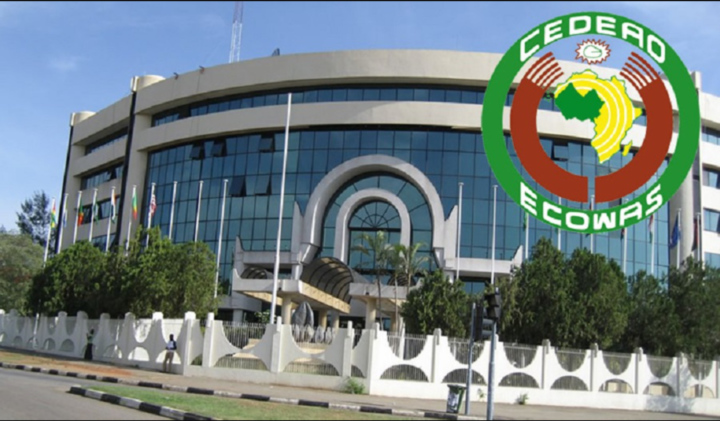The Economic Community of West African States (ECOWAS) has taken a major step toward addressing poverty and inequality across the region with the launch of its new Social Protection Framework and an accompanying operational plan. The initiative, which comes at a time when West Africa is grappling with multiple socio-economic challenges, aims to strengthen social safety nets, expand coverage for vulnerable populations, and improve the resilience of households in the face of economic shocks.
Announced at a high-level gathering of policymakers, development partners, and civil society actors, the framework underscores ECOWAS’ commitment to inclusive growth and human capital development. For years, the region has struggled with systemic poverty, unemployment, food insecurity, and the effects of climate change, all of which have exposed gaps in social protection systems. The newly launched plan seeks to harmonize policies across member states, ensuring that vulnerable groups—such as women, children, the elderly, and persons with disabilities—are not left behind.

The framework builds on lessons learned during the COVID-19 pandemic, which highlighted the urgent need for stronger and more coordinated social protection measures. During the crisis, millions of West Africans fell deeper into poverty, and many governments resorted to temporary cash transfers, food distribution, and subsidies to cushion citizens. However, these interventions often lacked consistency, coverage, and long-term impact. ECOWAS’ new initiative is designed to address these gaps by creating a more sustainable, integrated, and regionally coordinated approach.
Officials explained that the operational plan will serve as a roadmap for member states, outlining key strategies for financing, implementation, and monitoring. One of its core goals is to enhance the effectiveness of cash transfer programs and other social safety nets, making them more inclusive and better targeted. The framework also emphasizes the importance of linking social protection to broader development agendas, such as education, healthcare, and job creation, thereby ensuring that interventions are not only reactive but also transformative.
Stakeholders have welcomed the initiative as timely, given the economic headwinds facing the region. Rising inflation, currency depreciation, and the global surge in food and fuel prices have deepened household vulnerabilities. In countries like Nigeria, Ghana, and Sierra Leone, the cost-of-living crisis has put immense strain on families, with many unable to afford basic needs. ECOWAS’ plan is expected to provide a buffer against such shocks while helping countries build stronger systems that can withstand future crises.
Experts also noted that the new framework could improve regional cooperation by providing a common platform for knowledge sharing, capacity building, and policy alignment. Social protection has historically been uneven across ECOWAS member states, with some countries implementing robust programs while others lag behind due to limited fiscal space and weak institutions. By pooling expertise and resources, ECOWAS hopes to narrow these disparities and ensure that all citizens benefit from a minimum standard of protection.
However, the initiative is not without challenges. Financing remains a major hurdle, as many West African economies are already burdened by high debt levels and competing spending priorities. Development partners have pledged support, but experts caution that sustained political commitment from member states will be crucial for success. Another challenge lies in governance and transparency, as weak accountability mechanisms in some countries have hampered the effectiveness of past social programs.
To address these concerns, the framework emphasizes the role of digital technology in improving delivery and monitoring. ECOWAS is encouraging member states to adopt digital payment systems, biometric registration, and data-driven targeting to ensure that resources reach the intended beneficiaries and leakages are minimized. These innovations are expected to reduce corruption, improve efficiency, and enhance trust in social protection programs.
Civil society organizations have also been identified as key partners in the implementation process. Their role in advocacy, grassroots mobilization, and monitoring will help hold governments accountable and ensure that the voices of marginalized communities are heard. Youth groups and women’s organizations, in particular, are expected to play a central role in shaping policies and ensuring inclusivity.
The launch of the framework also reflects ECOWAS’ recognition that social protection is not just a humanitarian necessity but an economic imperative. Studies show that effective social safety nets can boost productivity, stimulate demand, and promote stability, creating a foundation for sustainable growth. By protecting vulnerable groups, the region can reduce inequality, foster social cohesion, and unlock the potential of millions of citizens.
As the framework begins to take shape, all eyes will be on how member states integrate it into their national policies and budgets. The operational plan sets ambitious targets, but its success will depend on collective action, political will, and the ability of governments to align short-term relief with long-term development goals.
For ordinary West Africans, the hope is that this initiative will translate into tangible improvements in their daily lives—whether through reliable cash transfers, affordable healthcare, or accessible education. The framework may also provide much-needed stability in times of crisis, ensuring that no one falls through the cracks.
Ultimately, ECOWAS’ new social protection initiative is more than just a policy document; it is a call to action for regional solidarity. At a time when poverty, inequality, and insecurity continue to test the resilience of the region, the framework offers a blueprint for building a more inclusive and equitable West Africa. If effectively implemented, it could mark a turning point in the region’s journey toward sustainable development and shared prosperity.
Support InfoStride News' Credible Journalism: Only credible journalism can guarantee a fair, accountable and transparent society, including democracy and government. It involves a lot of efforts and money. We need your support. Click here to Donate
